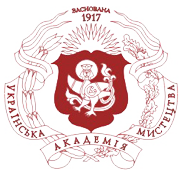THE USE OF ARTIFICIAL INTELLIGENCE TOOLS IN ART EDUCATION: CHALLENGES AND OPPORTUNITIES
DOI:
https://doi.org/10.32782/naoma-bulletin-2024-1-13Keywords:
artificial intelligence (AI), ChatGPT, latest AI tools, education, art educationAbstract
The purpose of the article is to clarify the challenges and opportunities of using artificial intelligence (AI) in art education. Research methods. The basis of the methodology of our research is: systematic approach, dialectical, formal and logical, structural and functional, synthesis and generalization, the method of theoretical and comparative analysis, which are used for theoretical justification of the feasibility of using AI in art education. Results and conclusions. As a result of the study, the main challenges of using AI tools in art education were identified. Thus, we can single out the inadequate level of digital literacy of some teachers, ineffective use of digital technologies and teaching methods, slow introduction of innovative methods and practices in the educational process, violation of intellectual property rights and principles of academic integrity, etc. We also identified the prospects and possibilities of AI in improving the quality of education. For example, in art education, AI technologies will be useful for creating interactive art installations, researching new forms of expression and creativity, assisting in the recognition and classification of elements in images, adapting educational content based on an individual approach to each student, promoting joint work of students on art projects and analysis of projects for the presence of potential biases and ethical problems.
References
Про схвалення Концепції розвитку штучного інтелекту в Україні: Розпорядження Кабінету Міністрів України від 2 грудня 2020 р. № 1556 Редакція від 29.12.2021. Верховна рада України. URL : https://zakon.rada.gov.ua/laws/show/1556-2020-%D1%80#Text
Елькін О. Віртуальне вчительство: чи замінить штучний інтелект людей у школах? Нова українська школа. URL: https://nus.org.ua/view/virtualne-vchytelstvo-chy-zaminyt-shtuchnyj-intelekt-lyudej-u-shkolah Дата публікації: 15.02.2023 (дата звернення: 21.01.2024 р.).
Паньок Т. В. Мистецька освіта. Енциклопедія сучасної України. Київ : Інститут енциклопедичних досліджень НАН України, 2018. Т. 20. URL: https://esu.com.ua/article-64674 (дата звернення: 25.01.2024 р).
Використання штучного інтелекту в освіті / Візнюк І. М., Буглай Н. М., Куцак Л. В. та ін. Сучасні інформаційні технології та інноваційні методики навчання в підготовці фахівців: методологія, теорія, досвід, проблеми. 2021. Вип. 59. С. 15–22. DOI: 10.31652/2412-1142-2021-59-14-22 (дата звернення: 6.02.2024 р.).
Авер’янова Н. Сучасне студентство у контексті формування національної еліти України. Вісник Київського національного університету імені Тараса Шевченка. Українознавство. 2010. № 14. С. 30–32. URL: http://ukrbulletin.univ.kiev.ua/Visnyk-14/Averjanova.pdf (дата звернення: 12.02.2024 р).
Горлач П. Всі стривожені: як використання ШІ впливає на мистецтво, кіно, музику та літературу. Суспільне. Культура. URL: https://suspilne.media/culture/645624-vsi-strivozeni-ak-vikoristanna-si-Елькінvplivaena-mistectvo-kino-muziku-ta-literaturu Дата публікації: 25.12.2023 (дата звернення: 14.02.2024 р ).
Мар’єнко М., Коваленко В. Штучний інтелект та відкрита наука в освіті штучний інтелект та відкрита наука в освіті. Фізико-математична освіта. 2023. Т. 38, № 1. С. 48–51 DOI 10.31110/2413-1571-2023-038-1-007 (дата звернення:10.01.2024).
Використання штучного інтелекту у вищій освіті / Драч, І., Петроє, О., Бородієнко, О., Регейло, І. та ін. Міжнародний науковий журнал «Університети і лідерство». 2023. № 15, С. 66–82. https:// doi.org/10.31874/2520-6702-2023-15-66-82 (дата звернення: 12.01.2024 р.).
Tsugorka O. Art academic education amidst martial law. Збірник наукових праць «Українська академія мистецтва». 2022. № 32. С. 161–167 DOI: https://doi.org/10.32782/2411-3034-2022- (дата звернення: 14.01.2024).








